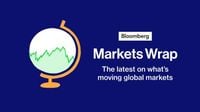Global stock markets took a hit on Tuesday, May 6, 2025, as concerns about the ongoing trade war and its implications for corporate earnings continued to mount. The S&P 500 futures fell approximately 0.56%, while the Dow Jones Industrial Average futures dropped 143 points, or 0.35%. The Nasdaq-100 futures also declined by 0.79%, reflecting a broader sense of unease among investors.
These developments come as the Federal Reserve prepares for its first policy meeting since President Donald Trump announced "reciprocal" tariffs in early April. The S&P 500 had snapped its nine-day winning streak the previous day, closing down 0.6%. The tech-heavy Nasdaq Composite fell 0.7%, and the Dow slipped 0.2%. Investors are now looking towards the Fed's two-day meeting, which begins on Tuesday, followed by a rates announcement on Wednesday, May 7, 2025.
Adding to the market's anxiety, Treasury Secretary Scott Bessent indicated on Monday that "we're very close to some deals" regarding trade, echoing Trump's comments about potential agreements in the near future. However, no official trade deals have been announced yet. A Bloomberg report suggested that India has proposed zero tariffs on certain goods, but the uncertainty continues to weigh heavily on market sentiment.
In the corporate arena, Palantir Technologies Inc. saw its stock drop about 8% in premarket trading after failing to meet investor expectations with its latest results. Similarly, Ford Motor Co. experienced a 2.3% decline after the automaker suspended its full-year financial guidance, citing a total tariff impact of approximately $2.5 billion on its 2025 earnings. Ford's Chief Financial Officer Sherry House revealed that the company expects the duties to reduce adjusted earnings before interest and taxes by about $1.5 billion this year.
Across the Atlantic, Germany's private sector managed to achieve modest growth in April, with the S&P Global composite Purchasing Managers’ Index dropping to 50.1, just above the neutral threshold of 50. This figure is better than the preliminary report, which had predicted a steeper decline to 49.7. Nonetheless, the economic landscape remains challenging for Friedrich Merz, who recently faced a parliamentary setback in his bid to become chancellor.
As the global economic landscape shifts, Hong Kong authorities have ramped up sales of the local dollar to maintain its peg against the U.S. dollar. The Hong Kong Monetary Authority sold a record HK$60.5 billion ($7.8 billion) of the city's currency on Tuesday, following HK$56.1 billion in sales since Friday, May 2, 2025.
In the UK, the FTSE 100 index rose 0.4%, continuing its record run of daily gains. Meanwhile, European stocks were slightly higher, with the pan-European Stoxx Europe 600 index trading 0.1% higher shortly after the opening bell.
In a significant move, DoorDash Inc. announced its acquisition of UK-based food-delivery platform Deliveroo Plc for an equity value of approximately £2.9 billion ($3.9 billion). This acquisition is expected to expand DoorDash's reach to over 40 countries, significantly increasing its market presence.
On the commodities front, gold prices rose to a two-week high of $3,372.01 an ounce, driven by tariff threats from President Trump and the looming Federal Reserve policy decision. UBS analyst Giovanni Staunovo mentioned, "We are still looking for gold to retest the $3,500 mark this year," highlighting the ongoing demand for the safe-haven metal amid economic uncertainty.
Trump's recent announcement of a 100% tariff on movies produced overseas and his intention to introduce pharmaceutical tariffs within the next two weeks have further fueled concerns among investors. As a result, traders are now pricing in a potential 75 basis points of rate easing from the Federal Reserve this year, with the first move possible in July.
In the energy sector, oil prices have seen a rebound after reaching the lowest close in four years, with Brent crude trading near $61 a barrel and West Texas Intermediate rising toward $58. This comes after OPEC+ agreed to a further supply boost from June, which has added bearish pressure on oil prices.
Meanwhile, Chinese markets resumed trading after a five-day holiday, with the benchmark CSI 300 Index gaining as much as 0.6% in early trading. Investors are keeping a close watch on signs of progress in trade talks with the U.S. while also assessing domestic consumption data. The Caixin China services purchasing managers’ index fell to 50.7 from 51.9 in April, indicating a deterioration in services activity.
In the Philippines, inflation slowed to its lowest rate in over five years, with consumer prices rising just 1.4% year-on-year in April, allowing the central bank to maintain its plans for further monetary easing this year. The Bangko Sentral ng Pilipinas has already lowered its benchmark rate and indicated that more cuts could be on the way as the global economic environment remains uncertain.
As the day unfolds, investors remain on edge, waiting for the Federal Reserve's policy announcement and monitoring the ongoing developments in trade negotiations. With the potential for significant shifts in economic policy and international relations, market participants are bracing for what could be a pivotal moment in the financial landscape.




